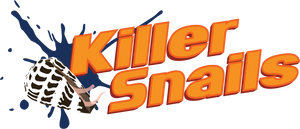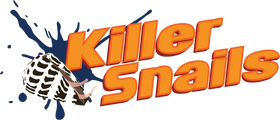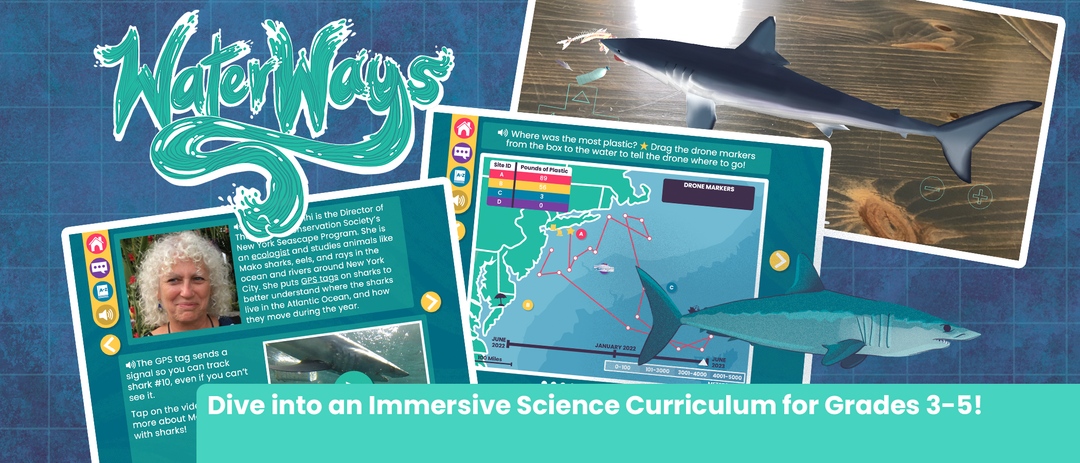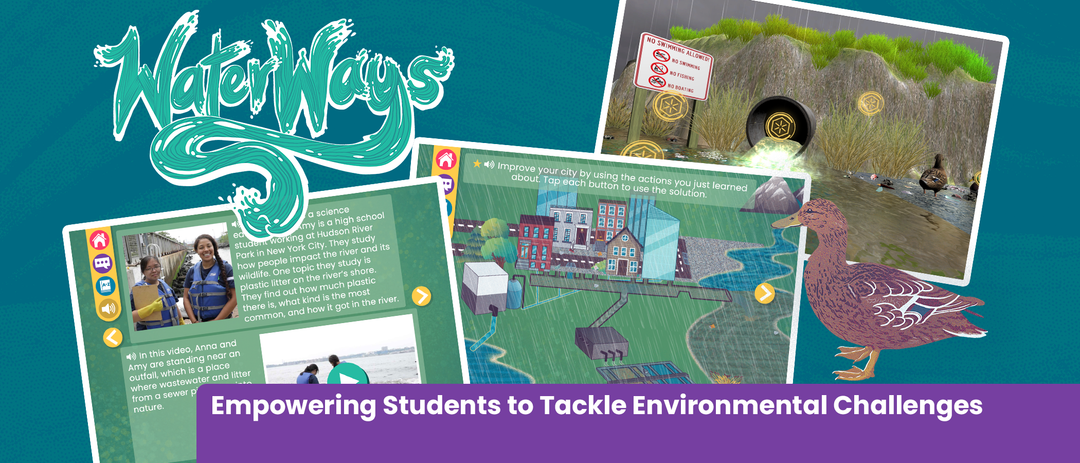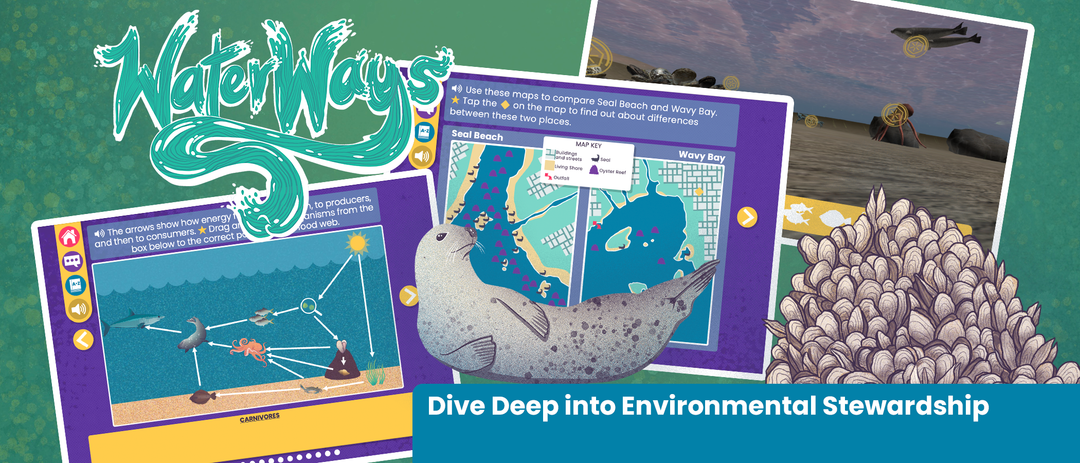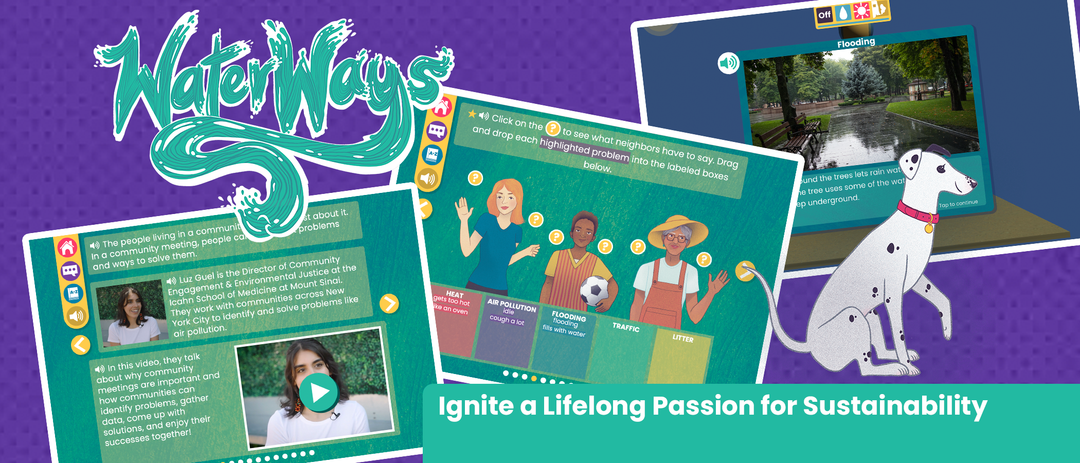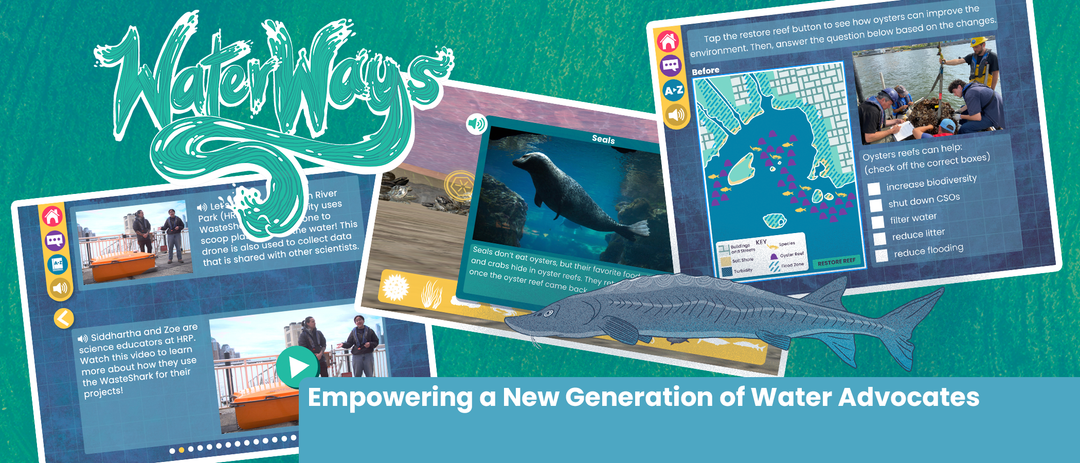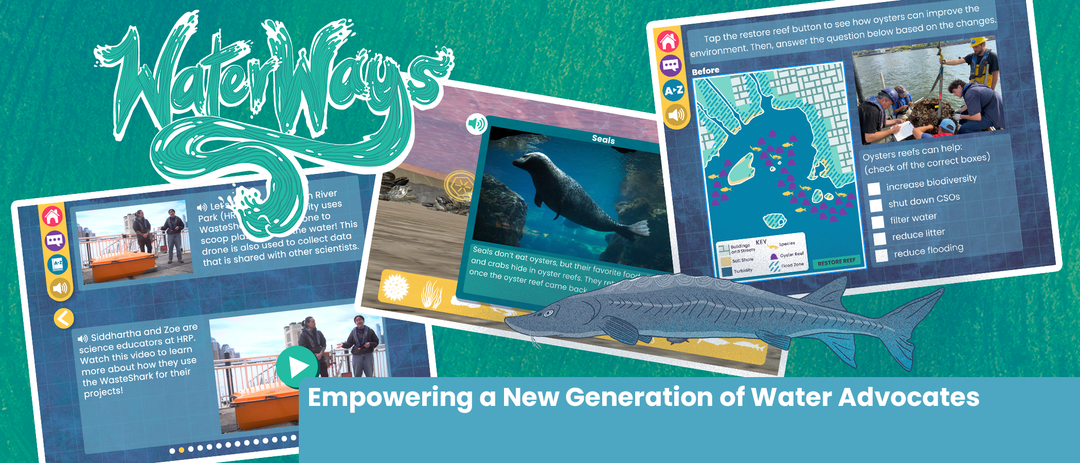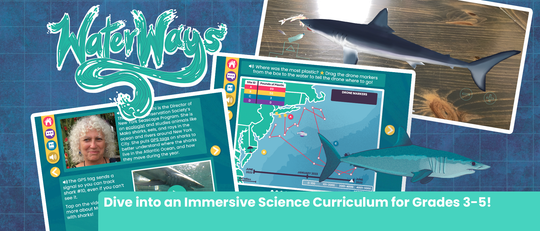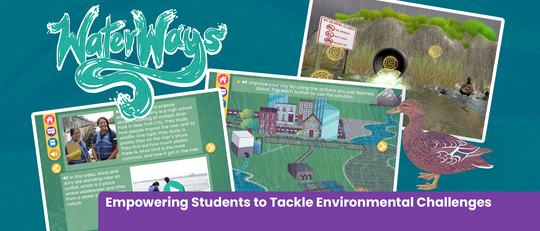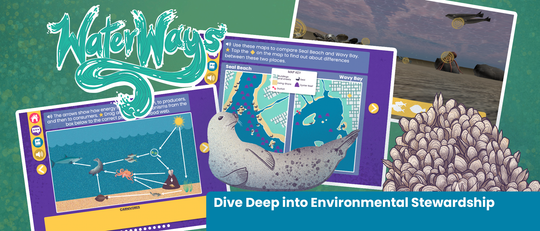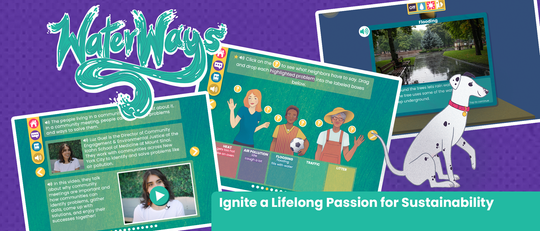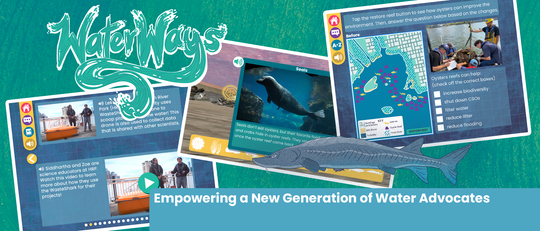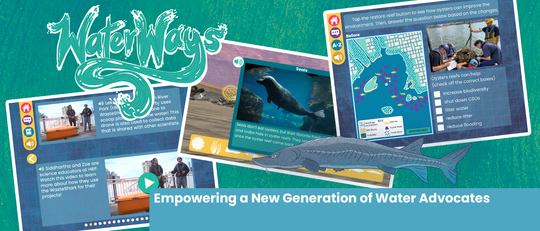WaterWays - Complete
Become a Chimhe City scientist and investigate problems like plastic pollution, air and water quality, Urban Heat Island effect, and marine biodiversity. With these immersive and interactive activities, students will learn about water use and water stewardship and identify what they must do to heal the environmental health of neighborhood communities.
Developed in collaboration with the Wildlife Conservation Society, Hudson River Park and Mount Sinai's Transdisciplinary Center for Early Environmental Exposure, with funding support from the National Institutes of Health.
Complete includes:
- A personalized digital science journal and an augmented reality experience, accessible by phone or browser using webVR.
- 40 minutes of interactive activities where students are scientists engaged with water science and water stewardship.
- Assessment dashboard for educators to monitor and scaffold student learning
Next Generation Science Standards:
Science Engineering Practices
- Developing and Using Models
- Analyzing and Interpreting Data
- Constructing Explanations and Designing Solutions
- Engaging in Argument from Evidence
- Obtaining, Evaluating, and Communicating Information
Disciplinary Core Idea
- LS1.A Structure and Function
- LS2.A Interdependent Relationships in Ecosystems
- LS2.B Matter and Energy Transfer in Ecosystems
- LS2.C Ecosystem Dynamics, Functioning, and Resilience
- LS4.D Biodiversity and Humans
- ETS1.A Defining Engineering Problems
- ETS1.B Designing Solutions to Engineering Problems
- ETS1.C Optimizing the Design Solution
- ESS2.A Earth Materials and Systems
- ESS3.B Natural Hazards
- ESS3.C Human Impacts on Earth Systems
Crosscutting Concepts
- Systems and System Models
- Cause and Effect
- Patterns
- Energy and Matter
- Scale Proportion and Quantity
Connections to Excellence in Environmental Education - Guidelines for Learning (K-12)
- Strand 1 (Analysis and Interpretation Skills): A, B, C, E, F, G
- Strand 2 (Environmental Processes and Systems): 2.1 A, B. 2.2 A, C, D. 2.3 A, B, D, 2.4 A, E
- Strand 3 (Skills for Understanding and Addressing Environmental Issues): 3.1 A, B, C, 3.2 A, B, C, D
- Strand 4 (Personal and Civic Responsibility): B, C
